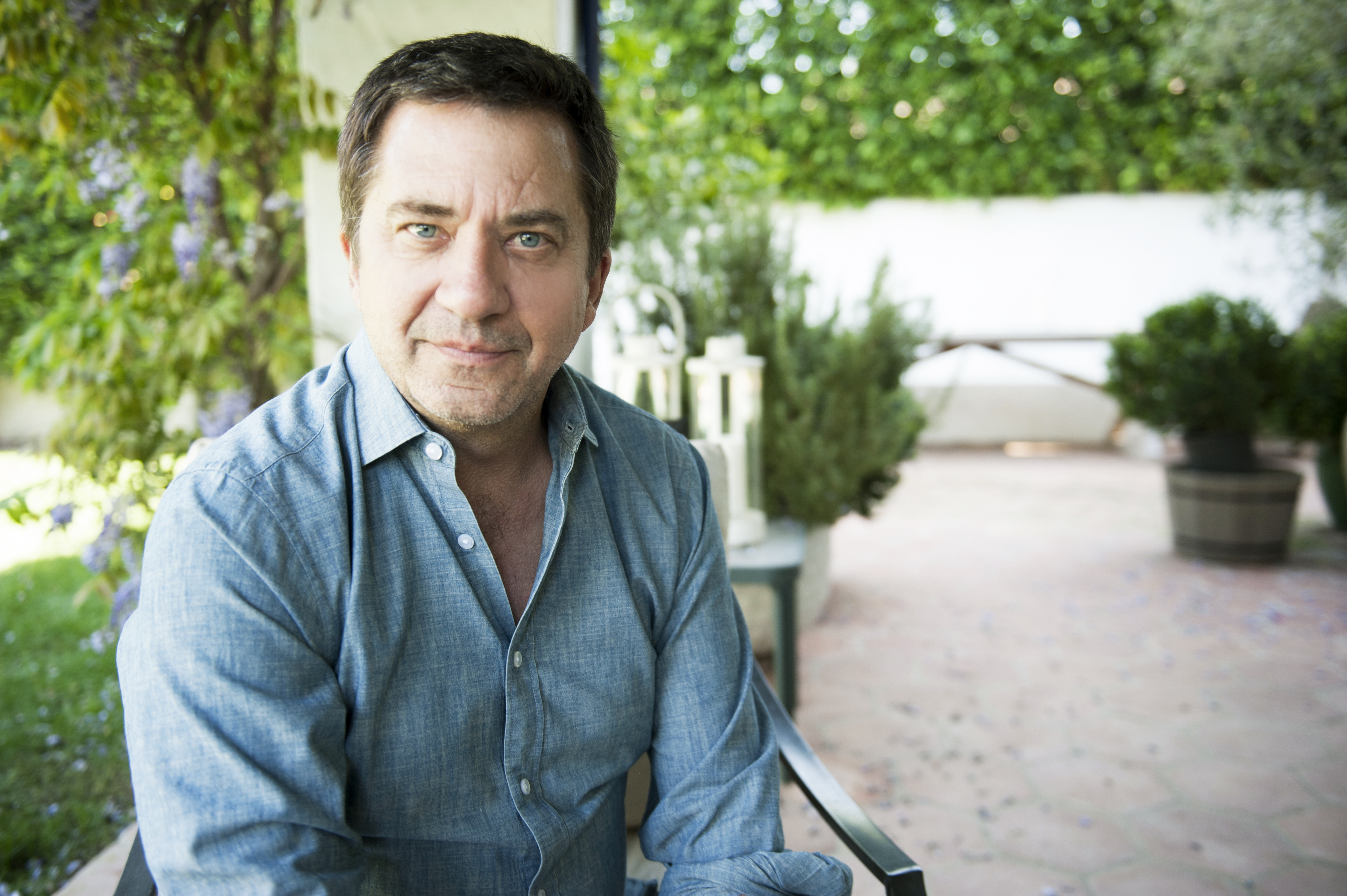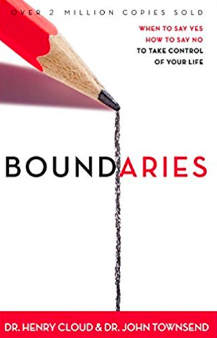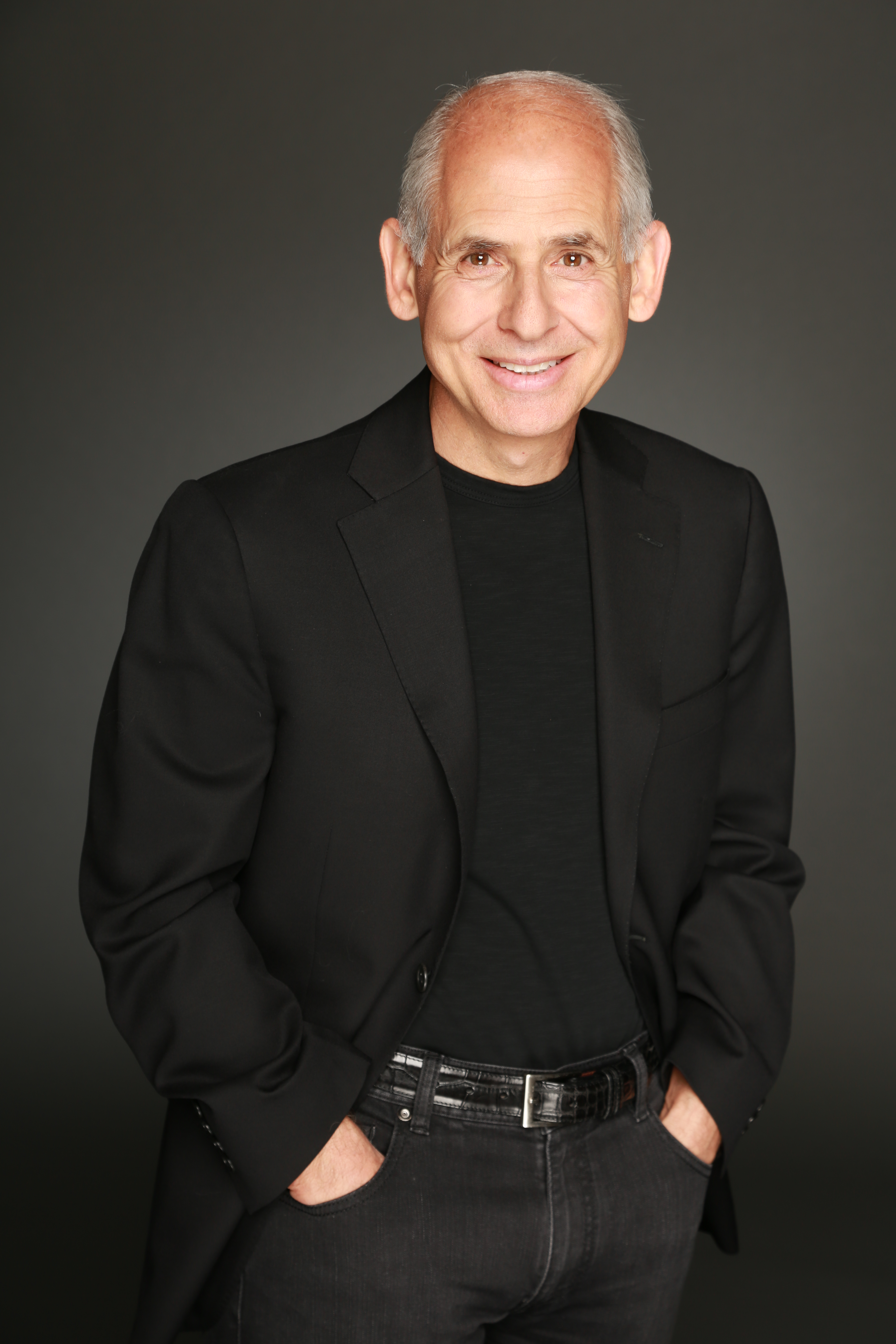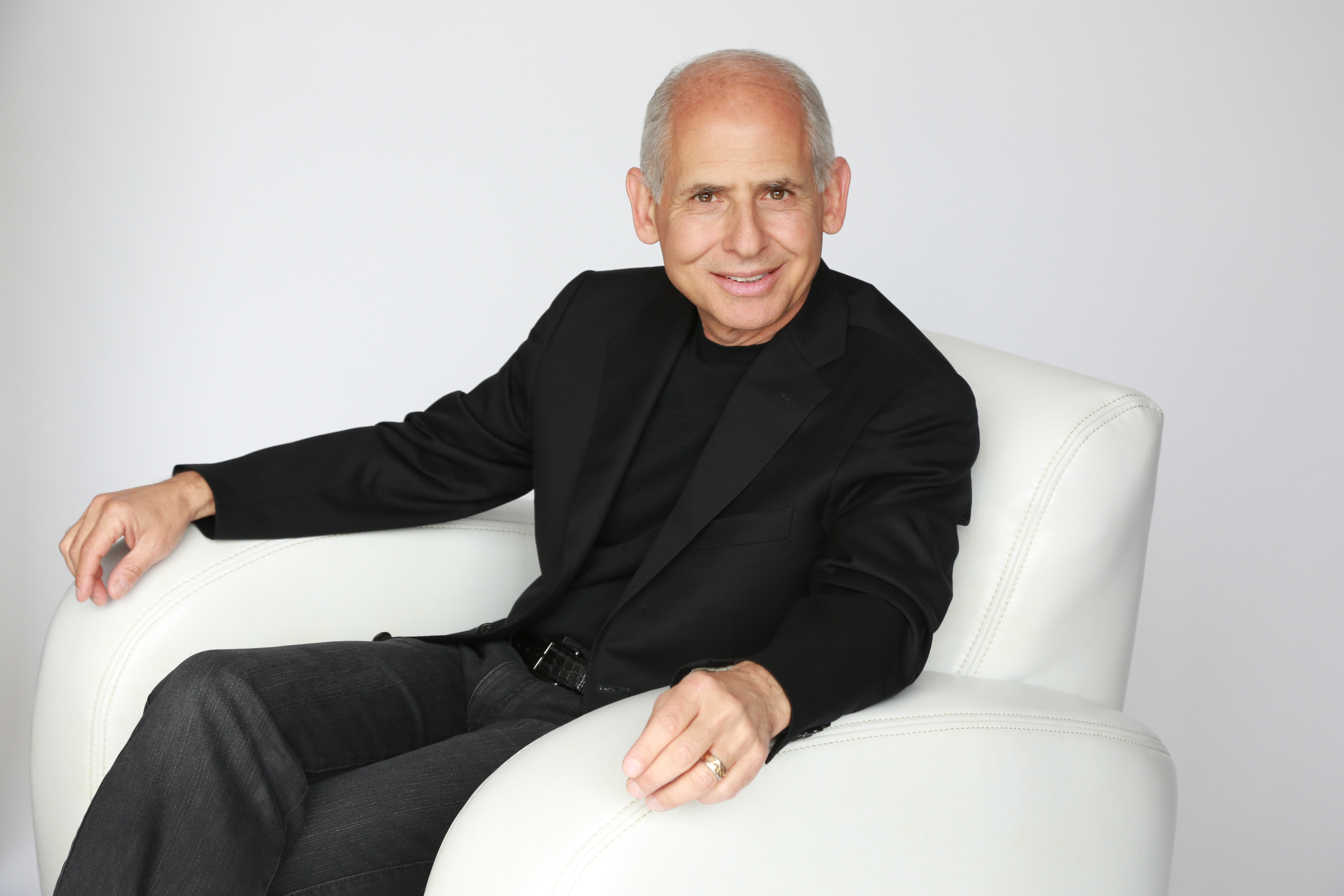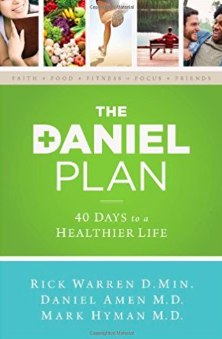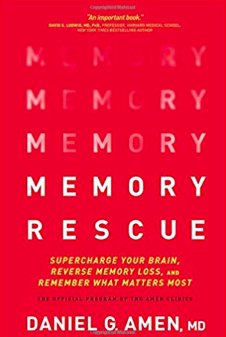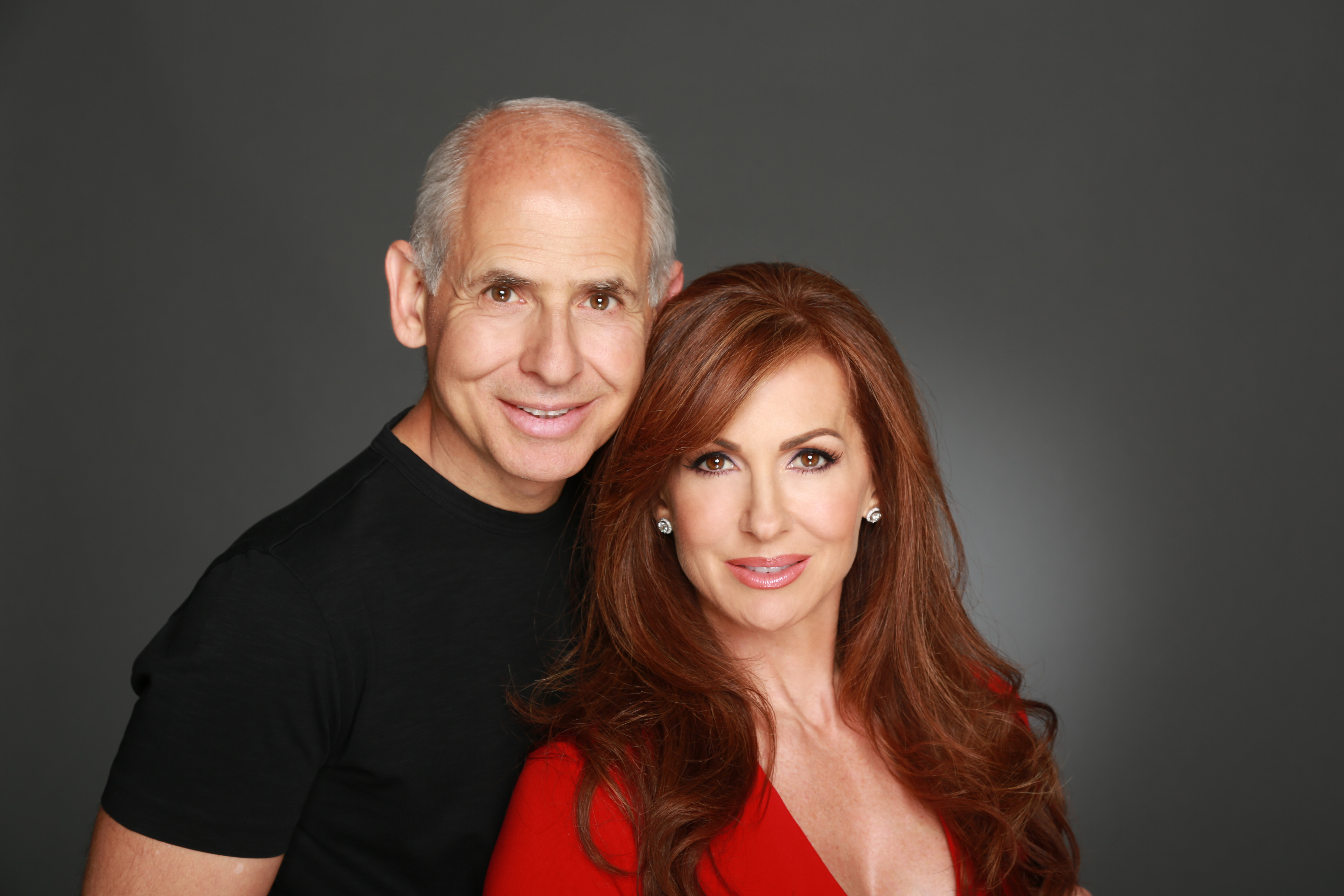Emotional Boundaries & Spiritual Health: Dr. Henry Cloud & Dr. Daniel Amen
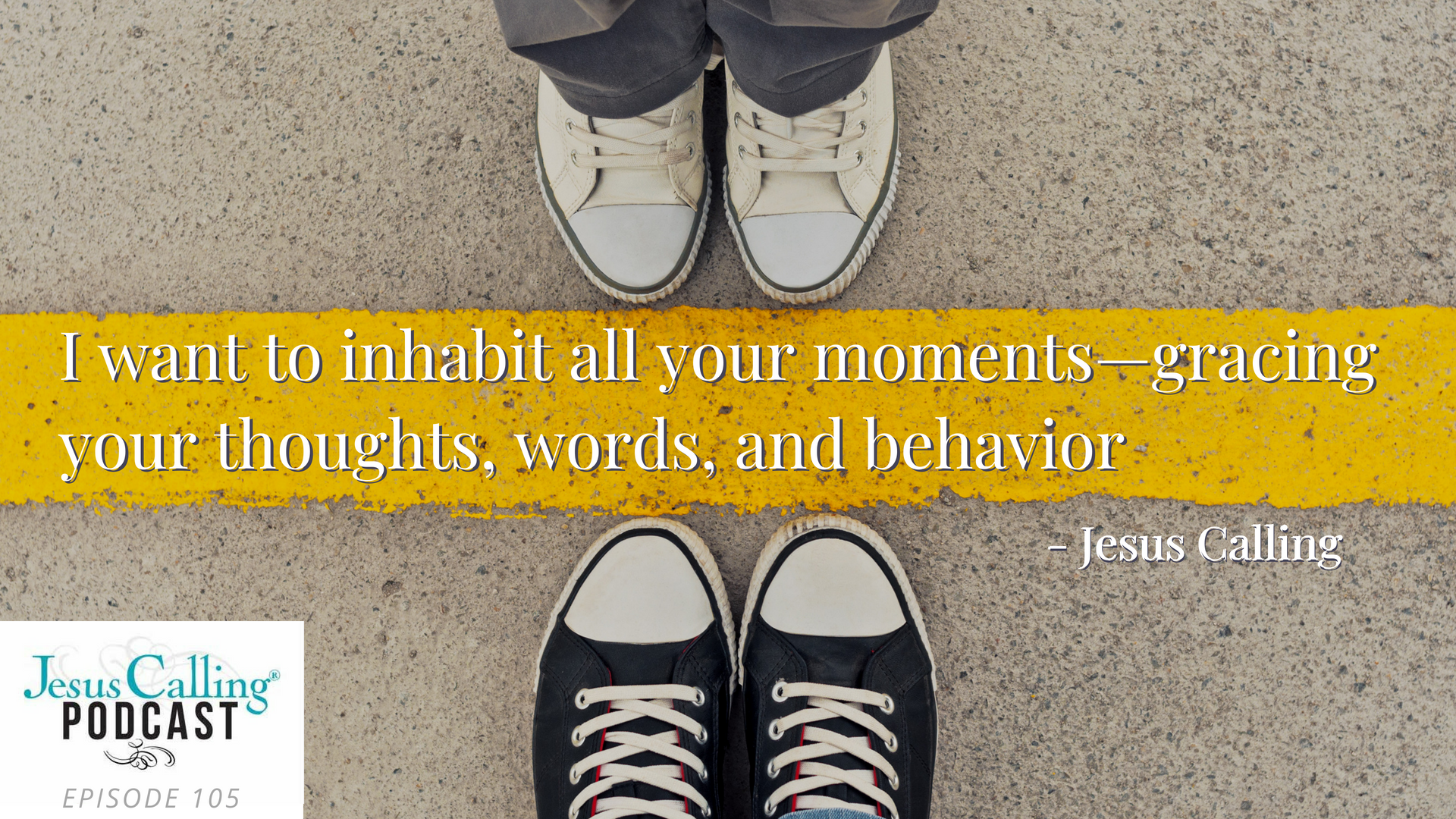
Today’s guests, doctors Henry Cloud and Daniel Amen, help us see how science and scripture can be connected in ways that explain our hurts and heal our pain. Dr. Henry Cloud is a clinical psychologist and New York Times bestselling co-author of Boundaries. He shares Biblical and scientific support that show how healthy emotional boundaries honor God, ourselves and others. Dr. Daniel Amen is one of America’s leading psychiatrists and brain health experts. He has helped countless people change their brains and lives through his clinics, public television programs, and books, including the New York Times bestseller The Daniel Plan and his latest book, Memory Rescue. Today he tells us how taking care of our physical health helps us take care of our brain and spiritual well-being.
Emotional Boundaries & Spiritual Health: Dr. Henry Cloud & Dr. Daniel Amen – Jesus Calling Episode #105
Narration: Welcome to the Jesus Calling Podcast. Today’s guests help us see how science and scripture can be connected in ways that explain our hurts and heal our pain: doctors Henry Cloud and Daniel Amen. First up, we have Dr. Henry Cloud, a clinical psychologist and New York Times bestselling author of more than twenty books, including Boundaries, a project he co-wrote with Dr. John Townsend in 1992 which has now been expanded to include boundaries for the digital age. Dr. Cloud is a leadership consultant who has given personal growth and development advice for more than three decades. Today he shares Biblical and scientific support that show how healthy emotional boundaries honor God, ourselves and others.
LEARNING ABOUT BOUNDARIES AT 30,000 FT.
Dr. Henry Cloud: I always say God’s Word is unbelievable in how believable it is. It is unfathomable the depths of what it actually describes as science.
I was sitting on the airplane one day and I mistakenly told this lady next next to me I was a psychologist when she asked, which I don’t usually do because then you’re going to be talking for a long time. Now I say, “I write books about Jesus. Would you like to talk for awhile?” And their paper goes up right.
So she asked me, and I said, “I’m a psychiatrist.”
And she said, “Oh I need to talk to you. My boyfriend . . .” And she comes out with the story.
And I said, “What’s the deal with your boyfriend?”
“Well we just broke up. I’m devastated. I’m really depressed, and I know what I’m going to do—I’m going to end up going back to him. But every time I go back, we break up again.”
I said, “Why do you break up?”
She says, “I have to.”
And I said, “Why?”
She said, “Because he gets so angry, and I can’t deal with this anger.”
And I said, “Well, that’s terrible. What does he get angry about?”
And she starts to tell me. I said, “It sounds like he kind of gets angry when you don’t do what he wants.”
And she goes, “Yeah, he does. And then I can’t live with that. Then I break up with him. And I’m sad and then I go back. And it’s just his anger and I go back.”
And I said, “What happens then?”
She said, “He’s not angry anymore if I go back and do what he wants.”
And I said, “You know, there’s an old saying. It says: If you rescue an angry man, you’ll only have to do it again tomorrow.”
“If you rescue an angry man, you’ll only have to do it again tomorrow.” – Dr. Henry Cloud quoting Proverbs 19:19
And she looks to me and she goes, “That’s amazing. Where did you get that? That’s exactly that’s exactly what happens. He’s angry. I go rescue him. It’s all better, but then I have to do it again because he keeps . . .” She said, “Where’d you get that?”
I said, “It’s from the Bible. Proverbs 19:19.”
She goes, “That’s in the Bible?”
“Well, yeah, it is.”
– – – – – – – – – –
Of course, you can also find it in any co-dependency book that’s ever been written. I think what we know if you look at psychology: you’ve got attachment problems. You’ve got structure of relationship problems and structure of personality problems. And then you’ve got this whole other area of depression, anxiety, and addictions and all this that are caused by our inability to process negative things. So if we’re abused or whatever, we can’t process that pain well.
And the way the psychiatric literature will talk about it is we live in a world where it’s supposed to be like this, but it’s like this instead of like this. And that gap between the way it ought to be and the way it is it’s called pain and suffering. And we don’t have the equipment to process that, apart from relationship that accepts us and forgives we can forgive others and we have grief and all this kind of stuff. That’s right in the pages of Scripture.
“That gap between the way it ought to be and the way it is it’s called pain and suffering.” – Dr. Henry Cloud
Explaining Boundaries
Narrator: Dr. Cloud tells us about the updated version of their New York Times bestselling book Boundaries, which he and co-writer Dr. John Townsend released last year.
Dr. Henry Cloud: Basically, what John I talked about in the book Boundaries was that the Bible is the one that was saying all along what all the co-dependent literature and addiction literature was saying. But Christians, the only side of the Bible a lot of Christians had heard was the love side. You’ve got to be loving and forgiving and patient, and all this kind of stuff. But the having boundaries in your love was not really being communicated.
“The only side of the Bible a lot of Christians had heard was the love side. ‘You’ve got to be loving and forgiving and patient’, and all this kind of stuff. But the having boundaries in your love was not really being communicated” – Dr. Henry Cloud
So we just went to the Scriptures and said, “Look, guys, this is pretty clear here that if somebody knows if someone sins against you, you go to Matthew 18 and you tell them. And if they’re wise, they’ll go, ‘Whoops, sorry, won’t do that again.’ But if they don’t, they are already forgiven. Be patient, and let it go.”
No that’s not what it says. It says, “Of course you forgive.” But it says, “You get two or three others. And then you get a group, and you have an intervention. And then finally, if they don’t listen, you throw them out of the house.” That’s right in the Bible, right there. It’s all the way through the Bible.
The psychological term for this was boundaries or limits, however you want to look at it. But we just tried to show, “Look, stop this craziness of where you’re telling abuse victims that they just have to put up with it, or you’re telling people that are the victims of addictions and all this stuff that they’re just supposed to put up with it. That’s not what the Bible says. The Bible says you’re supposed to forgive and you’re supposed to draw limits.
“The Bible says you’re supposed to forgive and you’re supposed to draw limits.” – Dr. Henry Cloud
Basically what we did in Boundaries was we just kind of showed loving people that the Bible says not only can you be a loving person and not get abused, but you’re actually commanded to. And so you could almost say that Boundaries was just sort of a hermeneutic. It was an interpretation applied to the context of painful relationships, of loving people who were in pain having a way out that God actually smiled on and they weren’t bad for saying.
There is no verse in the Bible that says, “Blessed are the doormats, for they shall inherit the heels.” It does not say that. It says, “If somebody says they’re sorry or repents, you forgive them seventy times seven. But but when you see people you know continuing . . . John the Baptist said bring forth fruit with your repentance. Don’t don’t give me this lip service. Stop the drugs or you can’t live in this house because I’m choosing to live in a drug-free zone.”
This is very biblical.
BOUNDARIES IN THE DIGITAL AGE
We wrote the original Boundaries book in ‘92. And in ‘92, the Internet wasn’t much of anything—in other words, in the way that it had altered our lives like it does now. So remember, the principles of Boundaries are timeless. These are God’s ways the context in which we live.
The context changes, so sometimes how we apply certain things will change. The Bible says to heal somebody is hurting. In the 16th century, it’s amazing to think you killed him in one way today. We have different ways, but we’re still healing.
So you get into this digital age. And it was a slow progression in the context of boundaries. The first thing you had was the big problem of natural boundaries. Think about this. We all had natural boundaries of time and space. Those are natural boundaries. You would go to work, you would be in a place called the office. And then you would be at work for a certain amount of time. And then you left work and you went to another place that was separate from work called home, and you did non-work and it was called your “personal life.” So you had a work life.
So then this thing called the Internet happens. And now work can find you at nine o’clock at night with the press of a button, and it can pierce time, it can pierce space. So now there’s no protection of time and space. Not only can work find you, but Mom can find you or Crazy Uncle Harry or your mother in law or father in law or a goofy cousin. Or the leader of the gossip chain in the church is trying to destroy your life. The manipulative adult sibling, they can find you all the time now. And so there’s no protection. You can’t let the phone ring you anymore. Now we have caller I.D. and they know you know who’s calling.
All of these built-in boundaries that begin to fade. And what we started to see was that the digital life was the context that a lot of boundary violations were happening in. And so there were intrusions and there was taking away of time. There was lots of time, lots of energy manipulation and violation and bullying and all the stuff we used to see on the playground of life, now are going through cyber waves.
“We started to see that the digital life was the context that a lot of boundary violations were happening.” – Dr. Henry Cloud
You write a book called Safe Driving. Safe driving is safe driving, but it’s a little different in a horse and buggy than in a car or a self-driving Uber. So [the original was] a little out of date, and it really had some funny language in it. There was a gang of, “Oh my gosh, I can’t believe that’s where the world was back then.”
In certain ways, we look for roles that are a bunch of other stuff. So it needs updating, but it really needed a digital update, particularly for parents. I have two teenage daughters [who need] boundaries in the digital world from a parenting perspective. Where are the limits? How do we set the limits? When are rules helpful? When are they destructive? All of those questions we begin to see people struggle with. And how do you have any space from everybody trying to control your life through this thing you carry around with you? So it was needed.
DEMANDS ON OUR TIME AND ENERGY
Narrator: In response to our increasingly busy culture, Dr. Cloud explains how we can deal with demands placed on our time and energy.
Dr. Henry Cloud: Teaching all of us very personal limits are all the way through the scriptures. If you go back to Moses, he was he was given too much. He spent too much of his time in all these cases in kind of the overworked pastor. He’s doing good stuff, but his father-in-law comes and says, “Moses, what you’re doing is not good.
He said, “What do you mean? I’m hearing all the people’s cases.”
He said, “No, you will certainly wear yourself out. Assign a bunch of this to other people, and you reserve the ones that are for your giftedness,” which he said were the hard cases. “You reserve those for yourself, so you don’t wear yourself out.” In other words you’re a human, you’re not God. You’re not the whole body the whole world.
A need is not a calling. The Bible’s pretty clear that there have been good works that have been laid down beforehand that you can walk in. Well, there’s more good works out there than any one of us can walk in. If we don’t learn to say no and be a steward over our time energy, then there’s not gonna be a lot left to give. And also, we’re not going to be what the Bible calls “a cheerful giver.” In 2 Corinthians 9 it says particularly in that context about money, but this is true about everything: “Give as you have purposed in your heart.” In other words, you have decided in your heart, I want to give this much to this cause, whether it’s time or energy or whatever. This is how much time you give to your in-laws or this much time you’re going to give to your friends, or your church, or this person that’s needy or whatever. You decide that.
“If we don’t learn to say no and be a steward over our time/energy, then there’s not gonna be a lot left to give.” – Dr. Henry Cloud
And the Bible says that ends up being a cheerful giver. “I want to give that time. I want to give four hours to this mission on that day.” Okay. Now I go the four hours, and I start to leave. And then they say, “What, are you leaving? You know we need you. I thought you were going to help.” It’s manipulative stuff.
Then that verse says this: “Don’t give begrudgingly or under compulsion, but as you purposed.” Well, begrudging means somebody’s pressuring you and we’re going to give in and we’re to hold a grudge. You’re not going to like it, like grrr. On the other side under compulsion means we feel compelled to like we don’t have the internal freedom to say no.
And people have got to recognize time and energy are are pretty much finite as a human. You can play with the energy one a little bit because you can get input from others and you get drained and all that. But the point is you are not an energy machine in that you don’t create it. It’s got to come from somewhere else—you can run your tank out. And you only have so much time. The Bible is clear about it all the way through. And yet people are taught that if they say no, that’s unloving.
The Bible says that our faith is not a bunch of rules, it’s a relationship. He’s always been calling everybody, and He wants us to answer. What’s the secret in that dialogue? When you look at it from the Boundaries perspective, if you can’t say no to all this stuff out there and never listen to Jesus’ calling, you’re in trouble.
“The Bible says that our faith is not a bunch of rules, it’s a relationship.” – Dr. Henry Cloud
I think I first heard of Jesus Calling through events I was speaking at. It was being given to me a lot as a gift and being handed out to people. I think part of the appeal was to call people into having the boundaries and space to have a devotional life with God, where you and God communicate.
I love the story of Mary and Martha. I think it relates to this whole question about “when do we sit down and hear Jesus’ calling? When do we respond to Him, and how does He talk to us?”
[Jesus said,] “Martha, Martha, you’ve got so many things you’re so worried about, so many things.”
Martha’s all frustrated and [saying,] “Mary, why aren’t you helping me?”
[Jesus said,] “You’re so worried about so many things that are not important. There’s only one.” He was calling Martha to set some limits on her activities and sit before His feet like Mary was doing. And He said, “Mary’s chosen the good part that won’t be taken away.”
So if you’re worried about what color the napkins are and whether or not somebody’s gonna like casserole, that’s probably not going to be remembered. But logging time in relationship with you and God and you and others, that’s going to live forever.
Narrator: To learn more about Dr. Henry Cloud, his personal coaching program, or more about the book Boundaries, please visit drcloud.com or boundaries.me.
Narrator: We’ll be back with the rest of our program after a brief message about a free offer from Jesus Calling.
Want a daily reminder that we can have hope, peace and joy each day in Jesus? Now it’s as easy as opening an email. The Jesus Calling Daily Email brings you a thought from the Jesus Calling family of devotionals every day. Brighten up your inbox with this little reminder and take a minute to connect with God during your day. To sign up to get your free, daily thought from Jesus Calling, please visit Jesus Calling.com/daily-email.
Narrator: Next up, we hear from Dr. Daniel Amen. Dr. Amen is one of America’s leading psychiatrists and brain health experts. He has helped countless people change their brains and lives through his clinics, bestselling books, and public television programs. He has authored or coauthored 70 professional articles and more than 30 books, including the New York Times bestseller The Daniel Plan.
Dr. Daniel Amen: So who am I? Daniel Amen. I am a medical doctor, a psychiatrist, an author. I founded Amen Clinics. We have 8 clinics around the United States, where we see people who have complicated mental health issues. We have some of the best outcomes published, so we’re really excited about what we do.
So I grew up in Southern California. I’m one of seven children. I’m third, which means I’m completely not special. I have an older brother, an older sister, and four younger sisters.
My dad is super powerful guy, owned chain grocery stores, as smart as can be. He grew up very poor, with immigrant parents, and I’m just so proud of him. And so I remember in 1980 when I told him I wanted to be a psychiatrist, he asked me why I didn’t want to be a real doctor. It’s like, who does that to their child?
But there was a lot of love and a lot of working in my house. I have an amazing mom, who’s got a perfect brain. She’s our resident normal brain around here, and her life reflected that. She’s got 22 grandchildren, 22 great-grandchildren. She knows everybody’s birthday, she’s everybody’s best friend. So she was very important to me growing up. And even though I didn’t get much time—when there’s seven, you’re sort of being raised by your siblings—the time I did was very special.
When I was in the Army as a young soldier, there was a really cute company clerk. So I asked her out, and she said, “Well, will you take me to church?” And I grew up Roman Catholic. I’d been an altar boy, was an altar boy then in the service. And so I’m like, “I can do church.”
And I developed a very close personal relationship with Jesus.
And when I got out of the military in 1975, I went to a Christian school, Vanguard University. And then I went to a Christian medical school, I’m very proud of that. I went to Oral Roberts University during a time in their development when they had a medical school. I was in their first class learning medicine, in the context of praying with patients. It was just it was perfect, it was special.
I got married when I was a second-year medical student, and about three months later my wife tried to kill herself. I had no idea what to do. And I took her to see a wonderful psychiatrist. And I came to realize if he helped her, which he did, it wouldn’t just help her—it would help me. And it would ultimately help our babies and our grandbabies as they would be shaped by someone who was happier and more stable.
I fell in love with psychiatry because I realized it had the potential to change generations of people. And I’ve loved it every day for 38 years or something crazy.
“I fell in love with psychiatry because I realized it had the potential to change generations of people.” – Dr. Daniel Amen
Change Your Brain, Change Your Life
In 1987 I finished my psychiatric training. So I’m an adult psychiatrist, but also I got trained as a child psychiatrist. And the Army sent me to a little place called Fort Irwin in the middle of the Mojave Desert. And I’m the only psychiatrist for 10,000 people, so I’m crazy busy. And I’m like, “What do we have to help our patients?” And not much. There was an old biofeedback temperature trainer. So if I teach you how to warm your hands with your mind, it actually causes almost immediate relaxation response in your body, so cool. So I’m like, “We need the best equipment here.” And so I twist the Army’s arm, and we got great equipment. I got trained to use it to help my patients. But in the process, I learned about another part of biofeedback called “neurofeedback” where we can put electrodes on someone’s scalp, measure the electrical activity in their brain and then teach them to literally change their brain. And I’m like a little kid, I’m so excited to be able to do this.
And then a couple of years later, I got out of the Army. But when I started my own practice, we used neurofeedback and it was so helpful. But then the revolution came in 1991 when I went to my first lecture on brain SPECT imaging. SPECT is a nuclear medicine study that looks at blood flow and activity. It looks at how the brain works. So I had already been thinking about changing people’s brains using neurofeedback. Now I was able to look at the brain in these beautiful 3D pictures that basically told us three things: good activity, too little, or too much.
I think my steps were ordered by God. Why do I say that? My first 10 cases caused me to be hooked on imaging. I remember all of them in great detail.
A little boy who had been hospitalized as he attacked another kid with a pencil—put a pencil in his neck. This is his third hospitalization for violence. And I scanned it, and he had trouble in his left temporal lobe. I’m like, “What does that mean?” Because I had no idea what that meant. And in the literature it was associated with people have seizure disorders. I’m like, “Oh, maybe he has a behavioral seizure disorder.” His brains sort of hijacks him. And on an anti-seizure medicine, his behavior is completely normal and he became one of the sweetest kids.
It’s like I hadn’t had those epiphany moments of, “If I know what’s going on in your brain, I can target treatment to you, and you can be better.”
THE FOUR BIG CIRCLES
Whenever we see a new patient, we always think of them in four big circles. So there’s the biology circle: what does your brain look like? Have you ever had a head injury? What are your genetics like? How is your physical health? Have you been exposed to toxins? For example, what’s your diet like? What’s the level of exercise? So that all falls under the biological circle.
There’s also a psychological circle, which is: how do you think? What’s your ANT population? ANT stands for “automatic negative thoughts,” the thoughts that come in your mind automatically you just ruin your day. So what’s your development like? What were your successes, what were your failures?
There’s also a social circle. Who do you hang out with? Because you become like the people you spend time with, people’s moods and attitudes. Emotions are as contagious as the flu. So you have to be very careful who you let yourself spend time with.
“You become like the people you spend time with—people’s moods and attitudes. Emotions are as contagious as the flu. So you have to be very careful who you let yourself spend time with. ” – Dr. Daniel Amen
And then there’s a spiritual circle, which very few of my colleagues actually talk about. But it’s your deepest sense of meaning and purpose. Do you believe you’re here by random chance and your life has no value? Or do you believe your part of intelligent design and that you’re here for a purpose to do something that’s meaningful? What’s your relationship with the planet? What’s your relationship with God? What’s your relationship with the past? So for me, it’s my grandfather. What’s your relationship with the future? My 5 grandbabies. Why do you want to be well? Ultimately I can’t do my purpose in life if my brain’s not right. So we evaluate these four circles. And when we treat you, it’s not just, “Here, take Prozac.” It’s, “Well, what are the biological things we can do, including your diet, exercise, and foundational supplements?”
CONNECTING PHYSICAL HEALTH AND MENTAL HEALTH
One of the things that I published [were] two studies that show when your weight goes up, the size and function of your brain goes down, which should just scare the fat off of anyone. I lost 30 pounds when I figured out that connection. Which led me to another part of what we do, which is we’re excited about getting people healthy. Because your physical health is totally connected to your mental health.
“When your weight goes up, the size and function of your brain goes down…your physical health is totally connected to your mental health.” Dr. Daniel Amen
Pastor Rick Warren called me from Saddleback Church. People know Pastor Warren. He’s been on the cover of Time magazine as America’s pastor. He’s the author of our generation’s bestselling book The Purpose Driven Life, thirty-six million copies. And he calls me out because he saw me on television talking about the Dinosaur Syndrome. When I published my studies on how when your weight goes up, the size and function of your brain goes down and I coined this term the Dinosaur Syndrome: big body, little brain, you’re going to become extinct. And he said, “I’m fat. My church is fat. On Sunday we just baptized 800 people, and five hundred of them were fat. Will you help me?”
And together with Rick and my friend Mark Hyman, we created a health program for Saddleback called The Daniel Plan based on five pillars. Faith: Why do you care? Food. Fitness. Focus, which was brain health. And friends: we get better or we get sick together.
15,000 people signed up. The first year, they lost a quarter of a million pounds. And they got off their medications their energies better they were able to get better jobs. One guy said his hair was gray became brown, who knew? but it was so much fun.
And then we wrote which turned out to be the Christian Book of the year in 2015, The Daniel Plan. And literally thousands of churches around the world are doing The Daniel Plan. So intention matters.
RECONCILING FAITH AND SCIENCE
There is this skepticism from many Christians about science because they are worried it will challenge their faith, and their faith is so important to them that they don’t want anything to challenge it. A lot of really well-known scientists are atheists like Stephen Hawking, who recently passed away. And I go down that road I’m going to lose my faith. Yet the head of the National Institute of Health is a devout Christian. And there’s just been not one thing that I’ve learned as a scientist that causes me to doubt my faith.
“There is this skepticism from many Christians about science because they are worried it will challenge their faith, and their faith is so important to them that they don’t want anything to challenge it.” Dr. Daniel Amen
Now where it really gets sticky is a lot of Christians will say, “If you are depressed, it’s because you have sin in your life, because you don’t believe enough.” And that’s abusive. Yes, if you have sin in your life, it can make any difference. But if you have a head injury, it’ll make you depressed. If you have low thyroid, it’ll make you depressed. If you Lyme infection, it will make you depressed. If you have no control over your automatic negative thoughts, that can make you depressed. We have to not take a simplistic view.
When I was a medical student at ORU, I heard that. And at ORU, that just grated on me because depression is complicated. And to just say, “It’s because you have sin in your life and if you just prayed more . . .” It will help if you pray more. But it doesn’t mean spiritual crisis is the cause of your depression because you have to look at all four of those circles.
RESCUING YOUR MEMORY
Narrator: Dr. Amen tells us about his findings about memory, which are recorded in his new book Memory Rescue.
Dr. Daniel Amen: So one of the big lessons I’ve learned here at Amen Clinics is that you are not stuck with the brain you have. You can make it better and I can prove it.
“You are not stuck with the brain you have. You can make it better and I can improve it.” – Dr. Daniel Amen
I think our most famous study is our NFL work, where 80 percent of our players show improvement in as little as two months. And with Alzheimer’s disease expected to triple in the next 30 years and all the pharmaceutical companies are getting out of the Alzheimer’s business because they’re not finding one drug to fix it. And they never will because it’s not one thing.
The idea behind Memory Rescue is if you want to keep your brain healthy or rescue it if you think it’s headed for trouble, you have to prevent or treat the 11 major risk factors that steal your mind. And we know what they are. And so Memory Rescue just walks you through what’s your risk to develop of problems. What are your risk factors to be alive. So there’s a questionnaire. What are your risk factors and how do you attack each one? And it’s super simple.
Even though there are a thousand scientific references, memory rescue’s a big problem. So I wanted to make sure my colleagues knew it was really serious about it. But at the end of each chapter, you absolutely know if you have that risk factor, and here are 10 simple things to do. Pick one. Because if you pick one, you’ll pick two. And if you pick two and you start to feel better. You’ll pick four and pretty soon you’ll become what we call a “brain warrior.” You’ll be armed, prepared, and aware to win the fight of your life.
HABITS BECOME CHARACTER
And so there’s been this movement in neuroscience over the last 20 years that the brain can change. I mean I knew that as soon as I started looking at scans. And what what I’ve learned is whatever you do is what you’re going to continue to do. So you actually have to be very careful about what you allow yourself to do. So if you allow yourself to do things that are really not good for you, you’re going to continue to do those things that are really not good for you. On the other side of that is if you do things that are good for you and you can get into rhythm, such as reading the Bible or taking time each day to pray and meditate, you’re going to continue to do that and build a healthy path rather than being on sick path.
I tell all of my patients you want to be very careful what you allow yourself to do. If your child irritates you and you scream or hit them, the next time they irritate you, you’re going to scream or hit them. Which is not going to be a good thing, because your behavior has generational consequences because when they get irritated, they may scream or hit their own kids. You have to be thoughtful about what you do.
SET YOURSELF UP FOR DAILY SUCCESS
So for me, I do this right before I go to bed. That’s my time to read the Bible. And I find that to be very helpful. And if I don’t do it because I’m traveling or something, I notice that something’s off.
But we also have to work on getting your mind right. And I love to make things as simple as possible. Start every day with, “Today is going to be a great day.” Just say that to yourself, and then your brain will find why it’s going to be a great day. I mean you really set yourself up for success that day. And then at the end of the day—I actually did this in bed with my wife last night—just go, “What went well today?” I mean, two minutes. What went well today? Because it actually sets up your sleep to process the positive memories, rather than the brain typically second negative. Because years ago, that’s you had to survive: by always being aware of what could go wrong. Odds are you’re not going to get eaten by a tiger. So what went well today? Just to begin to retrain your brain in a positive way.
Narrator: Dr. Amen reads a passage from Jesus Calling that relates to how we can let God influence our minds and how His presence can grace our thoughts, words, and behavior.
March 19th: I speak to you from the depth of your being. Hear Me say soothing words of Peace, assuring you of My Love. Do not listen to voices of accusation, for they are not from Me. I speak to you in love-tones, lifting you up. My spirit convicts cleanly, without crushing words of shame. Let the Spirit take charge of your mind, combing out tangles of deception. Be transformed by the truth that I live within you.
The Light of My Presence is shining upon you, in benedictions of Peace. Let my light shine in you; don’t dim it with worries or fears. Holiness is letting Me live through you. Since I dwell in you, you are fully equipped to be holy. Since I dwell in you you are fully equipped to be holy. Pause before responding to people or situations, giving my spirit space to act through you. Hasty words and actions leave no room for Me; this is aesthetic living. I want to inhabit all your moments—gracing your thoughts, words, and behavior.
Narrator: To learn more about Dr. Amen and his books, please visit DanielAmenMD.com.
Narrator: Next time on the Jesus Calling Podcast, we talk to New York Times bestselling author Max Lucado. Max talks to us about his new book Unshakeable Hope, in which he offers encouraging guidance for overcoming sadness and despair, renewing a sense of purpose, and triumphantly facing our fears of the future.
Max Lucado: Every day we have the choice: are we going to stand on the circumstances of life, the pain in life, the problems of life? Or are we today going to build our lives on the promises of God? And making that daily choice is the most important choice we can make.
